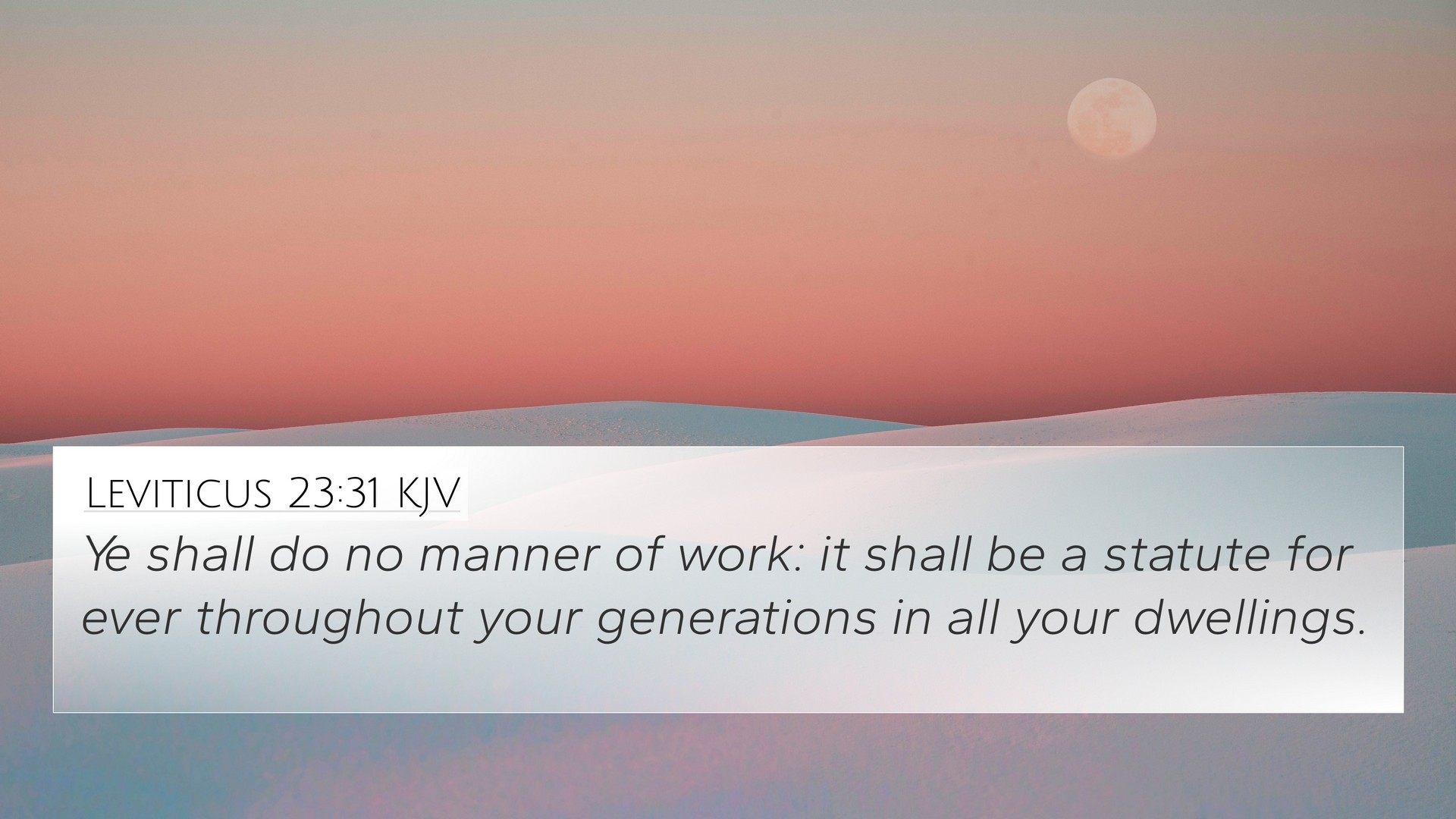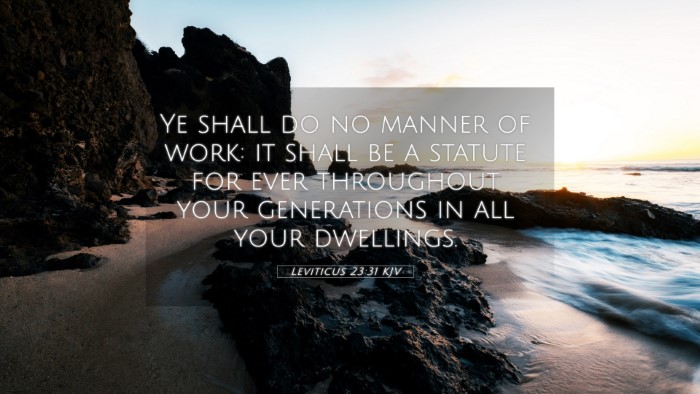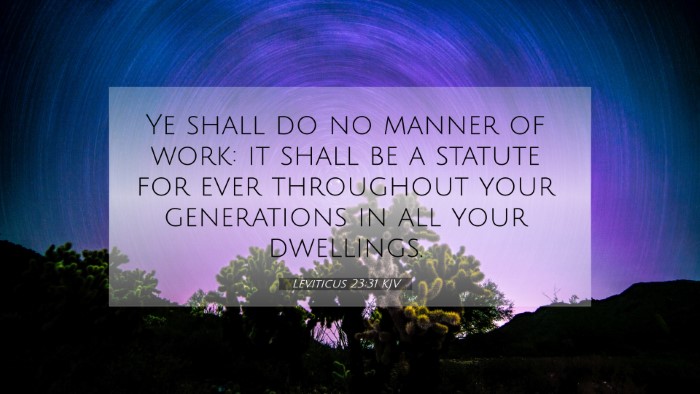Understanding Leviticus 23:31
Verse: Leviticus 23:31 - "You shall not do any work. It is a statute forever throughout your generations in all your dwellings."
The verse emphasizes the importance of observing a specific period of rest and reflection, affirming God's holiness and the necessity of maintaining a rhythm of work and rest in spiritual life.
Summary of Insights from Public Domain Commentaries
Matthew Henry's Commentary
Matthew Henry draws attention to the concept of rest, stating that God's command not to work during these appointed times signifies a deeper spiritual rest. This rest serves as a time of reflection and rejuvenation for the covenant community, allowing them to draw closer to God. He explains that the prohibition of work underscores God's sovereignty, inviting believers to recognize the blessings that come from resting in Him.
Albert Barnes' Notes on the Bible
Albert Barnes elaborates on the significance of this statute as an ongoing tradition that shapes the identity of the Israelites. He explains that the unyielding nature of this edict—“throughout your generations”—shows the perpetual relevance of divine rest in the life of the faithful. Barnes notes that the cessation from work not only serves to honor God but also fosters communal bonds among the people as they gather in worship and remembrance.
Adam Clarke's Commentary
Adam Clarke touches on the principle of sacred time, emphasizing that the observance of such laws, including the prohibition against work, is critical for maintaining a spiritual focus. He discusses how this commandment was intended to preserve the integrity of worship and provide a reminder of God's creative power and ongoing sustenance of life. Clarke suggests that through these observances, people were (and are) continually reminded of their relationship with the divine.
Cross References for Leviticus 23:31
Here are several Bible verses that relate to Leviticus 23:31:
- Exodus 20:8-10: "Remember the Sabbath day, to keep it holy. Six days you shall labor, and do all your work, but the seventh day is a Sabbath to the Lord your God."
- Mark 2:27: "And He said to them, 'The Sabbath was made for man, and not man for the Sabbath.'" - This underscores the principle of rest in the New Testament context.
- Hebrews 4:9-10: "So then, there remains a Sabbath rest for the people of God; for whoever has entered God’s rest has also rested from his works as God did from his." - A connection to the ultimate rest believers find in Christ.
- Leviticus 25:4: "But in the seventh year there shall be a Sabbath of solemn rest for the land, a Sabbath to the Lord." - This illustrates the broader application of rest commanded by God.
- Deuteronomy 5:14: "But the seventh day is a Sabbath to the Lord your God. On it you shall not do any work..." - Another emphasis on the importance of rest.
- Isaiah 58:13: "If you turn back your foot from the Sabbath, from doing your pleasure on my holy day..." - Highlights the significance of keeping the Sabbath and its implications for worship.
- Romans 14:5-6: "One person esteems one day as better than another, while another esteems all days alike. Each one should be fully convinced in his own mind." - Discusses the importance of individual conviction regarding sacred days.
Thematic Connections
This command to refrain from work relates thematically to various biblical principles, such as:
- Rest: The Sabbath as a symbol of available rest through faith in God's provision.
- Holiness: The calling to be set apart and reflect God's nature through observed practices.
- Community: Gathering as a community for worship and reflection, reinforcing shared beliefs and traditions.
Tools for Bible Cross-Referencing
For those interested in exploring the relationships and connections between verses, consider utilizing:
- Bible Concordance: A valuable resource to identify key terms and their occurrences throughout scripture.
- Bible Cross-Reference Guide: A reference tool that maps out related verses and themes.
- Cross-Reference Bible Study: Methodologies that promote in-depth study by comparing and contrasting verses.
Conclusion
In reflecting on Leviticus 23:31, we find a rich tapestry of meaning woven through the textures of rest, holiness, and community. Connecting this command to other scripture through cross-referencing provides a fuller understanding of its implications in both the Old and New Testaments. Gaining insights from various commentaries enhances our study, offering diverse perspectives on how these verses interplay and inform our faith journey.


